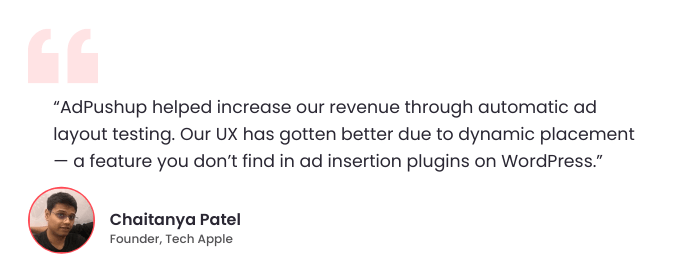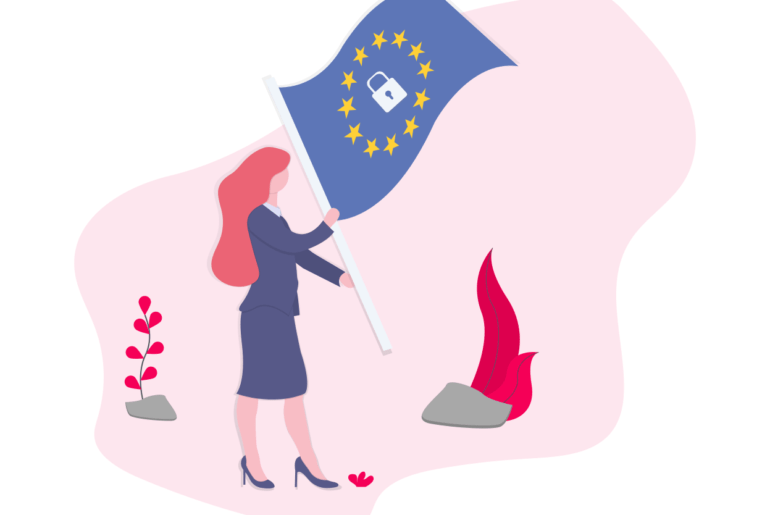CCPA and GDPR are the common terms that emerged to give publishers greater power over their personal information. Here’s what you need to about the two regulations – CCPA vs GDPR.
As you may know, EU-based privacy regulation GDPR and California’s own consumer privacy law, the CCPA are both the privacy laws, both work to strengthen data protection for users.
- CCPA gives increased transparency and control over how businesses collect and use their data. The law applies to organizations doing business in California. (Source: oag.ca.gov)
- GDPR gives European Union (E.U.) increased transparency and control over data collection and how businesses use their data. The law applies to organizations from and outside of the E.U. that process the data of the E.U. residents. (Source: GDPR-Info)
The aim of the two laws might be the same, but upon looking thoroughly, significant differences between the two frameworks become apparent.
Also Check: First Fold Spain: Meetup with Leaders of the EU Publishing Community
CCPA vs GDPR – Comparison Table
Since the GDPR applies all across the EU, all the 28 member countries possess the ability to make small updates of their own to the regulation, e.g., making updates to the Data Protection Act 2018 of the UK.
The CCPA bill received a pass in June 2018ㄧa month later after the GDPR came in to effectㄧfollowed by amendments in September 2018 and October 2019 later on.
Although, CCPA is not to be taken as a replacement to California’s existing privacy laws, CalOPPA.
Complying to the CalOPPA privacy policies is easier compared to the CCPA. While the CalOPPA, which continues to exist, applies to any business or website that collects information about California residents, e.g., collecting a resume or order shipping details, the CCPA enforces stricter, broader data collection rules on larger entities.
Watch our Quick 20 minutes Presentation on “Decoding CCPA”
CCPA and GDPR Terminologies
Both the frameworks might serve similar purposes, but they address things differently through their own nomenclature. It is also important to know about the terms related to the CCPA and GDPR.
Individual/Userㄧthe one who is protected
- CCPA: Consumers
- GDPR: Data subjects
Information/Dataㄧthat what is protected
- CCPA: Personal information
- GDPR: Personal data
Business/Companyㄧthe one that is regulated
- CCPA: Business and service providers
- GDPR: Data controllers and processors
Note: This section does not mention all the terminologies used under the CCPA and GDPR.
Also Read: GDPR Consent String: Everything A Publisher Needs to Know
CCPA and GDPR Similarities
The CCPA and GDPR frameworks use different terminologies, but there are provisions that cater to similar purposes. Here are some similarities between the two:
- Type of Individuals Covered:
Cover natural persons and not legal persons with respect to ‘consumers’ and ‘data subjects’ that they protect under their respective frameworks.
- Data Protection for Minors:
Define special provisions for protecting personal information of children under or up to 16; the GDPR requires consent from parents or guardians and the CCPA requires opt-ins regarding selling of ‘personal information.’
- Excluding Personal Purposes:
Exclude ‘business and service providers’ and ‘data controllers and processors’ from their application if the processing of information is related to personal, household, or non-commercial activity.
- Anonymizing the Data:
Do not apply their frameworks on anonymized data where data cannot reasonably identify or be linked to a ‘consumer’ or ‘data subject.’
By now, you’ve hopefully understood the basic definitions and differences of the CCPA and GDPR, the purposes they serve, the terminology they use, and the commonalities they share. Now, let’s uncover key differences between the CCPA vs GDPRㄧwhat sets them apart and what individuals and businesses should know.

A Summarized Overview – CCPA vs GDPR
Both the CCPA and GDPR laws strive to create a regulatory environment that strongly emphasizes data privacy and transparency for different geographies.
As publishers and advertisers globally continue to keep pace with technology, the best way is to implement privacy and compliance policies that can help scale your business and adapt when necessary.
AdPushup ad revenue optimization platform helps publishers comply with data privacy regulations such as GDPR, CCPA, and others. So is your business GDPR and CCPA ready? We can help you obtain GDPR and CCPA compliance on your website. Sign up here.
FAQs
The General Data Protection Regulation (GDPR) came into effect on 25th May 2018 and provides a legal framework for protecting everyone’s personal information by requiring companies to follow robust processing and storage practices.
Among the purposes of the General Data Protection Regulation (GDPR) is to protect individuals’ fundamental rights and freedoms, especially their right to privacy. A person’s right to privacy is guaranteed by the European Convention on Human Rights (ECHR).
In this way, minors are protected, giving them a greater sense of privacy. Consumers benefit from greater transparency from companies as a result of the CCPA. There will be a need for companies to be upfront about what information is collected and for what purpose. Consumers cannot sell their personal information without their consent.
a) CCPA gives rights to consumers who are California residents.
b) GDPR gives rights to data privacy who are E.U. residents.
c) CCPA deals with information which is personal in nature that relates to, identifies, and describes a consumer.
d) GDPR deals with only personal data of an individual and businesses.

Shubham is a digital marketer with rich experience working in the advertisement technology industry. He has vast experience in the programmatic industry, driving business strategy and scaling functions including but not limited to growth and marketing, Operations, process optimization, and Sales.







